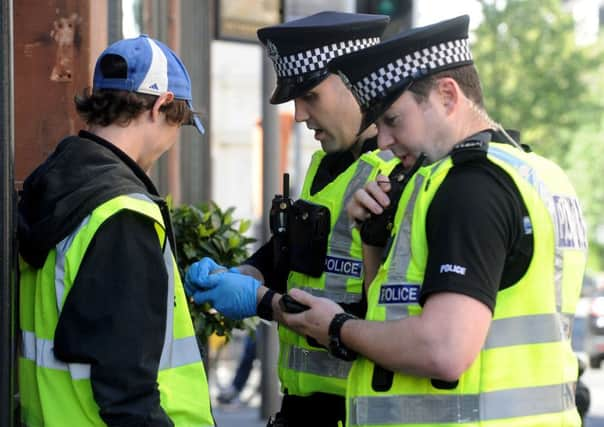Chris Marshall: Research asks searching questions


Just when the force thought the controversy over its use of the tactic was beginning to recede from view, two academic reports were delivered which re-ignited the debate all over again.
The first of these, a study by researchers at Dundee and Edinburgh Napier universities of a ten-month pilot in Fife, would have made uncomfortable reading for Police Scotland’s top brass.
Advertisement
Hide AdAdvertisement
Hide AdIt said officers felt under pressure to meet targets over stop and search, concluding that the practice should only be used as a “last resort”, with a move away from non-statutory or “consensual” searches, where the subject gives verbal consent.
That report, released on Friday, was followed by another on Monday from respected stop and search researcher Dr Kath Murray, of Edinburgh University.
Dr Murray found the number of searches has fallen by 38 per cent since the formation of Police Scotland in April 2013.
But people north of the Border remain four times more likely to be stopped and searched than those living in England and Wales.
Among Dr Murray’s findings was the statistic about the number of searches of 16-year-olds in Glasgow during 2014-15.
That startling indictment of stop and search indicates the force is stopping some young people over and over again, driving a wedge between the communities officers are tasked to protect. While officers often recover weapons and drugs, many “positive” searches – where something is found – are for alcohol.
Earlier this year, when the prospect of consensual searches being scrapped was first raised, Police Scotland said the move would leave them with a “gap” because they would no longer be able to look for alcohol.
While police currently have the ability to confiscate drink, there is no law which allows them to search for it.
Advertisement
Hide AdAdvertisement
Hide AdAn independent advisory group chaired by John Scott QC is currently examining the use of stop and search powers in Scotland.
It is expected to make its recommendations to the Scottish Government in the coming weeks.
The group may or may not back Police Scotland’s suggestion that legislation allowing for alcohol searches would be needed to “plug the gap” left behind by consensual stop and search.
Whatever the group’s conclusions, this interminable situation cannot be allowed to continue.